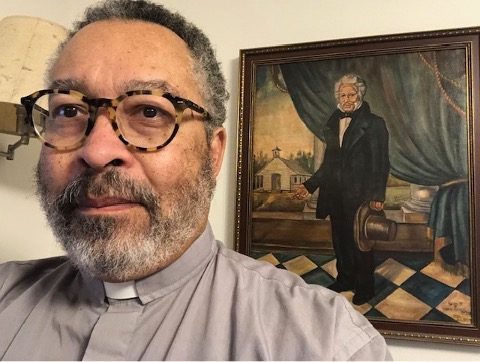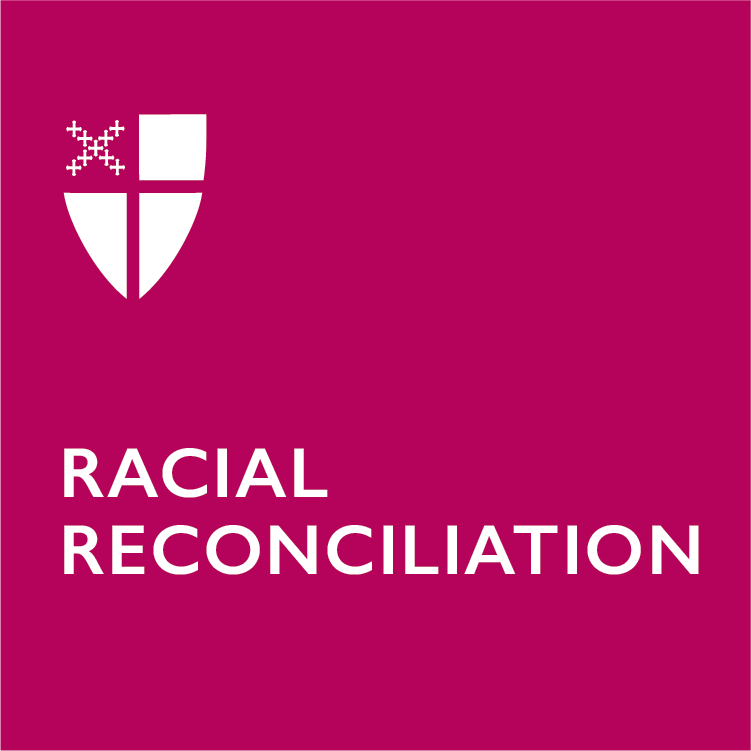By Eric Metoyer

In our home, mostly family portraits and photos are displayed; there are pictures of my in-laws in their college days, another of four generations of the Edwards family. One wall has three portraits: me from college, Frederick Douglass, and my ancestor, Nicholas Augustin Metoyer.
History is terribly complex, as I learned from my family. I am the descendant of slave owners and enslaved people. My branch of the Metoyers descended from Marie Therese (CoinCoin) Metoyer, an enslaved woman who bought her children’s freedom and gave them her land; they, in turn, built the plantation now known as Melrose in northwest Louisiana. My mother’s family, the Edwardses, descended from Gabriel Coakley, a Black man freed from slavery, and his wife, Mary (Calloway) Coakley of Washington, D.C. In those family files, I have copies of the manumission papers for Mary and their children; Gabriel purchased them and then gave them their freedom. The Metoyers and Gabriel Coakley each established a St. Augustine’s Roman Catholic Church in their respective communities; founding and maintaining Black Catholic churches were important to both families. This knowledge of my past informed my commitment to building the Beloved Community in The Episcopal Church.
My family’s story is a small chapter of American Black history. These stories include inventors and mechanics, educators and farmers, doctors and armed forces personnel, writers, musicians, artists, activists, clergy, and leaders of the ongoing work of civil rights, recorded on tape, in memoirs and video, preserving not only who we were, but also the promise of who we become. I learned from my parents not to shy away from our history, complex as it is, for our ancestors also remind us that we are people of great faith, as theologian Dr. Kortright Davis called us: “the Children of God who are blessed by Ebony Grace.”
Recently, I read about this current movement of controlling history, the claim of parents’ rights over the content of school subjects. There is a need to ban books in libraries to combat “wokeness” and “the teaching of critical race theory” and to remove from libraries books authored by LGBTQ+ and people from various racial and ethnic backgrounds. There is fear that the stories about people of color, of the broad experiences of our life realities, will harm children and educators.
We who are blessed with “Ebony Grace” know our stories and do not fear our history; rather, we want to learn more about ourselves and share that knowledge with others; it will enlighten us, not harm us.
Dr. Lonnie Bunch wrote an article describing the founding of Black History Month for Smithsonian Magazine, titled “Knowing the Past Opens the Door to the Future: The Continuing Importance of Black History Month.” Carter G Woodson, Ph.D., created “Negro History Week” in 1926 to ensure “that school children be exposed to Black history,” Bunch writes. The week gained broader recognition as Black History Month starting in 1976. In the article’s conclusion, Bunch writes:
(There is) need to draw inspiration and guidance from the past. And through that inspiration, people will find tools and paths that will help them live their lives…. I experience the African American past when I think of my grandfather choosing to leave the South rather than continue to experience share cropping and segregation. Or when I remember sitting in the back yard listening to old men tell stories. Ultimately, African American History — and its celebration throughout February — is just as vibrant today as it was when Woodson created it 85 years ago. Because it helps us to remember there is no more powerful force than a people steeped in their history. And there is no higher cause than honoring our struggle and ancestors by remembering.
I encourage us to visit our libraries and continue learning our complex histories; if there is no Black History Month section, offer to help create one. Attend concerts, plays, and movies telling our story, and be willing to share our story, especially with the generations who follow us. Learn more of our history in The Episcopal Church at the following links: https://www.episcopalchurch.org/ministries/african-descent-ministries/ and https://www.episcopalarchives.org/church-awakens/.
We who are blessed with Ebony Grace know our stories and do not fear our history; rather, we want to learn more about ourselves, “honoring our struggle and ancestors by remembering.”
This work and God be praised, and let the church say, “Amen!”
—
The Rev. Eric Metoyer is a deputy to General Convention from the Episcopal Diocese of California.
